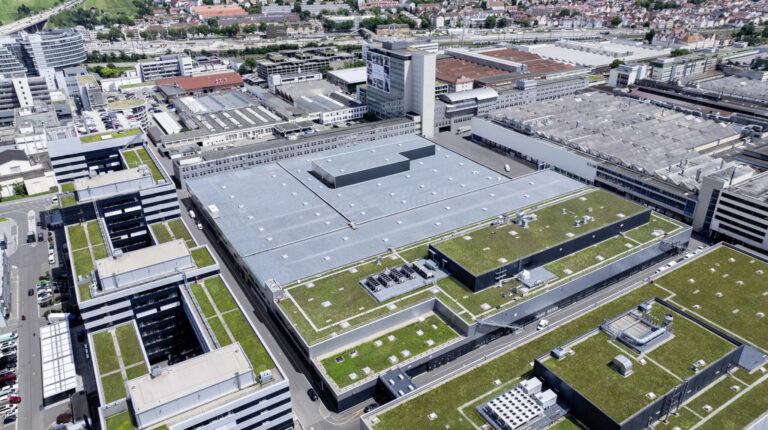Mercedes-Benz has inaugurated a new competence center dedicated to the development of high-performance battery cells and new manufacturing processes.
The opening ceremony for the eCampus facility at its Stuttgart-Untertürkheim headquarters in Germany was attended by German federal minister of economic affairs Robert Habeck and Baden-Württemberg minister-president Winfried Kretschmann.
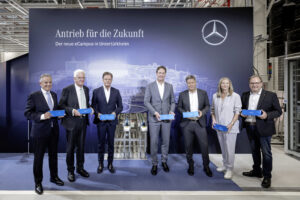
The eCampus will develop new chemical compositions and optimized production processes for high-performance battery cells. The facility encompasses the entire product and process chain of cell development and production, enabling the development of expertise for economical manufacturing processes.
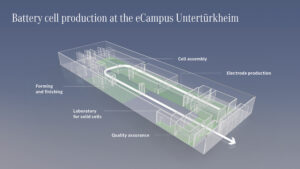
Mercedes says it is investing €14bn (US$15bn) in 2024 into research and development and its plants, with a large portion allocated to battery and electric drive system advancements. These investments aim to strengthen Stuttgart-Untertürkheim as a high-tech location for drive technologies, and support the auto maker’s sustainability business strategy – the new facility has been constructed with recycled concrete and features a green roof and photovoltaic systems.
Ola Källenius, chairman of the board of management of Mercedes-Benz, emphasized the strategic importance of the eCampus: “The opening of the Mercedes-Benz eCampus marks an important step in our sustainable business strategy. It is our ambition to also play a leading technological role in electric mobility. The eCampus brings us closer to this goal. The work carried out here will help to reduce battery costs by more than 30% in the coming years.”
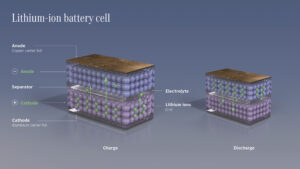
Focusing on various forms of cell chemistry, the facility will develop lithium-ion cells with high-energy anodes based on silicon composites and cobalt-free cathode chemistries, as well as solid-state battery technology. The aim is to develop cells with high energy density, fast-charging capability and superior performance.
Operations at the eCampus will start in two stages. The first stage includes a 10,000m2 factory for industrial-scale battery cell production, which has commenced operations. The second stage, due for completion by the end of the year, will house a battery ramp-up factory for product and process development as well as a test and proving center.
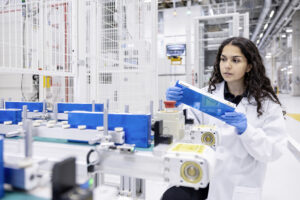
The plant already produces flexible drive systems for both fully electric and electrified vehicles and is responsible for a large part of the group’s drivetrain R&D.
Robert Habeck, German federal minister for economic affairs and climate action, said, “High-performance batteries comprise the heart of the electrification of transport – and are the key to the successful transformation of the automotive industry. The demand for innovative and sustainable batteries will continue to rise sharply in Europe in the coming years.”
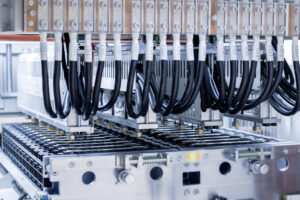
Markus Schäfer, member of the board of management of Mercedes-Benz and CTO, outlined the comprehensive R&D expertise at the eCampus: “At the new eCampus, we can pool and expand our comprehensive research and development expertise across the entire electric drive system even more effectively. This offers us new opportunities for sustainable innovations in cell chemistry.”

